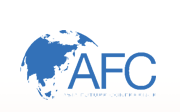Shared Growth Seminar
-
Ms. Girlie Toribio in SGRA Sustainable Shared Growth Seminar #20
“PEDPED” SMOKING AMONG THE MAJOR ETHNIC TRIBES IN BENGUET, PHILIPPINES:THE TOTAL ECONOMIC VALUE OF THE CAGAYAN DE ORO RIVER BASIN [caption id="attachment_625" align="alignnone" width="300"] Click image to enlarge[/caption] ABSTRACT: Benguet Province in Northern Philippines has diverse culture and ecology, and is adjudged as the home of indigenous peoples living their own culture and beliefs complementary with their environment. The experiences of “Pedped” smokers and the role of pedped to the Ibaloy, Kankanaey and Kalanguya ethnic tribes were focused on this qualitative research. “Pedped” (Glochidion), a shrub-like plant known as anam by the Igorots and kupkupit by the Bontocs, are abundant in the Philippines and are used as substitutes for tobacco for this plant does not constitute anynicotine rather it contains triterpenoids and flavonoids. Going back to rootsand ancestry, smokers inherited the trait of smoking pedped since time immemorial, and became part of their culture from generation to generations. On the mirrors of health, and while the general rule that smoking is dangerous to health, most of the smokers claim pedped as a cigarette has good effects to their health than tobacco cigars. The older respondents attested that there is a relax feeling after smoking pedped. In the light of the variety I know, variety I smoke, anam is the preferred variety with small leaves, thin fibers and smells good. Likewise, the output flow described how pedped are dried, sliced and wrapped into sticks ready for smoking. Inclusively, the pedped plants with medicinal properties should be preserved and propagated so that such plants will continuously coexist with the smokers and the environment. Ms Girlie Gayle ToribioGraduating Student of BENGUET STATE [email protected] -
Arch. Regina Gilda Billones in SGRA Sustainable Shared Growth Seminar #20
AN ASSESSMENT OF THE RELATIONSHIP OF URBAN DECAY AND POVERTY INDICATORS IN THE OLD RECLAMATION AREA OF PASAY CITY [caption id="attachment_618" align="alignnone" width="300"] Click image to enlarge[/caption] ABSTRACT: The Old Reclamation Area (ORA) is at the heart of Pasay City’s long history. It has undergone numerous physical and socio-economic changes. ORA has evolved into a state of urban decay where the socio-economic situation began to disintegrate, and these manifest in various forms including the depreciation of the physical state. Therefore it is the theory of this research that there is interaction between the socio-economic factors of poverty with the decaying state of the Old Reclamation Area. The methods of the study are done in parallel with the primary goals of the research to assess the relationship of the relationship of the physical symptoms of decay with the socio-economic indicators of poverty and to use the results of the assessment to explore the urban redevelopment program in the study area. In the process leading up to the assessment of these factors, various strategic methods have been employed: 1) Key Informant Interviews; 2) Focus Group Discussion; 3) Field Survey; 4) Correlation Analysis; and 5) Map Analysis. The 14 core indicators of the Community Based Monitoring System (CBMS) are used to correlate with the symptoms of decay. As a result of various methods, the research summarizes that there are 34 symptoms of decay and 10 supplemental symptoms of decay in the Old Reclamation Area classified under 5 different categories. These symptoms are valuable inputs to the study as well as crucial to determining the physical conditions of the barangays of the study area. By means of map analysis, the results of the research validate the land use strategy of assigning ORA for urban redevelopment in the existing and proposed Pasay Comprehensive Land Use Plan. Results of the study also show that other barangays, situated intermittently in the entire study area also require extensive improvements. Urban redevelopment strategies can be strengthened by sector-based solutions to direct a more comprehensive approach to the program. Using the results of the correlation analysis, the various Programs, Projects and Activities (PPAs) can be deduced as part of the redevelopment agenda. By employing the results of the study, the program can focus on issues that are most relevant to solving the problems of urban decay. The results of the research can also be used for the formulation of policies that are tied up with the redevelopment program in ORA. Architect REGINA GILDA B. [email protected]@gmail.com -
Arch/EnP Sylvia Clemente in SGRA Sustainable Shared Growth Seminar #20
REVISITING MANILA’S COMPREHENSIVE LAND USE AND DEVELOPMENT PLANS IN PREPARATION FOR CLIMATE CHANGE AND A MORE SUSTAINABLE DEVELOPMENT GROWTH PATTERN ABSTRACT: The problem of climate-induced natural disasters in Metro Manila has been evident in recent years with such damage to the ecological environment, public infrastructure, private properties, loss of lives, negative impact on economic growth and development, with Manila being the most vulnerable and at risk. Other issues related to planning such as gentrification, destruction of historic structures, informal settlements and reclamation continue to pose major challenges to Manila. The "climate/disaster proofing” planning processes as approach to land use planning can mitigate its negative impacts. International best practices related to this method and other planning models such as sustainable design, transit-oriented development can also be applied. The proposed policy recommendations through proper zoning, identification of protected areas and conservation easements, revitalization of historic districts, and identification of priority programs/projects can serve as inputs to Manila's Comprehensive Land Use Plan and Zoning Ordinance towards a more disaster-resilient and sustainable city development. Click here for Presentation Slides Arch./EnP Sylvia D. ClementeUniversity of Santo [email protected] -
Dr. Aliza Racelis in SGRA Sustainable Shared Growth Seminar #20
Conceptions of Environment & Coexistence according to the Spanish philosopher Leonardo Polo: Implications for Sustainability Education [caption id="attachment_592" align="alignnone" width="300"] Click image to enlarge[/caption] ABSTRACT The functional integrity of the ecology requires balance between the demands of economic development and the preservation of the ecology and balance in satisfying the needs of current versus future generations: work, collaborative sharing and the care of the earth are at the heart of what it is to be human and are constitutive of the order of divine creation (Barrera, 2010). Ethics of care and concern for specific aspects of the common good seem crucial in any environment, as do personal values, character, and leadership. The ethical influences of human institutions have quite immediate and individual impacts (Racelis, 2014b). We observe that the human person is a being of opportunities, of choices or alternatives, a family and social being, a being who invents, a being capable of unrestricted growth in time. Man’s social being belongs to his manifestative relationship with the world, also referred to as intersubjectivity. Given that the human essence has been created to grow, each person is responsible for rectifying all intersubjective relationships that can inhibit such growth, and nourish those which enable such development (Racelis, 2014a). The Spanish philosopher Leonardo Polo had proposed four “anthropological transcendentals”, namely: (1) Personal Co-existence, (2) Personal Freedom, (3) Personal Intellection, and (4) Personal Love (Sellés, 2013). Co-existence is not mere living with, dwelling in or coinciding with, but rather it refers to the personal being’s being personally open in his intimacy. Polo (1997) says: “Loyalty and justice are conditions for the coexistence of free systems. But there is more: truthfulness, friendship, the most important of the virtues according to Aristotle. Polo (1991) likewise emphasizes that the human being, no matter what his journeys and difficulties, can always grow; he grows to the measure that his acts are good. Hence, the importance of the moral virtues. Since vigorous and deliberate reforms are needed to sustain broad-based long-term prosperity and sustainability, this paper shall draw implications of Polo’s conceptions of co-existence, freedom, culture and environment for the research and study of paths to long-term prosperity and sustainability education. Click here for Presentation Slides Dr. Aliza Racelis (University of the Philippines)[email protected] -
Opening Remarks of Junko Imanishi (Sustainable Shared Growth Seminar #20)
Click Here






